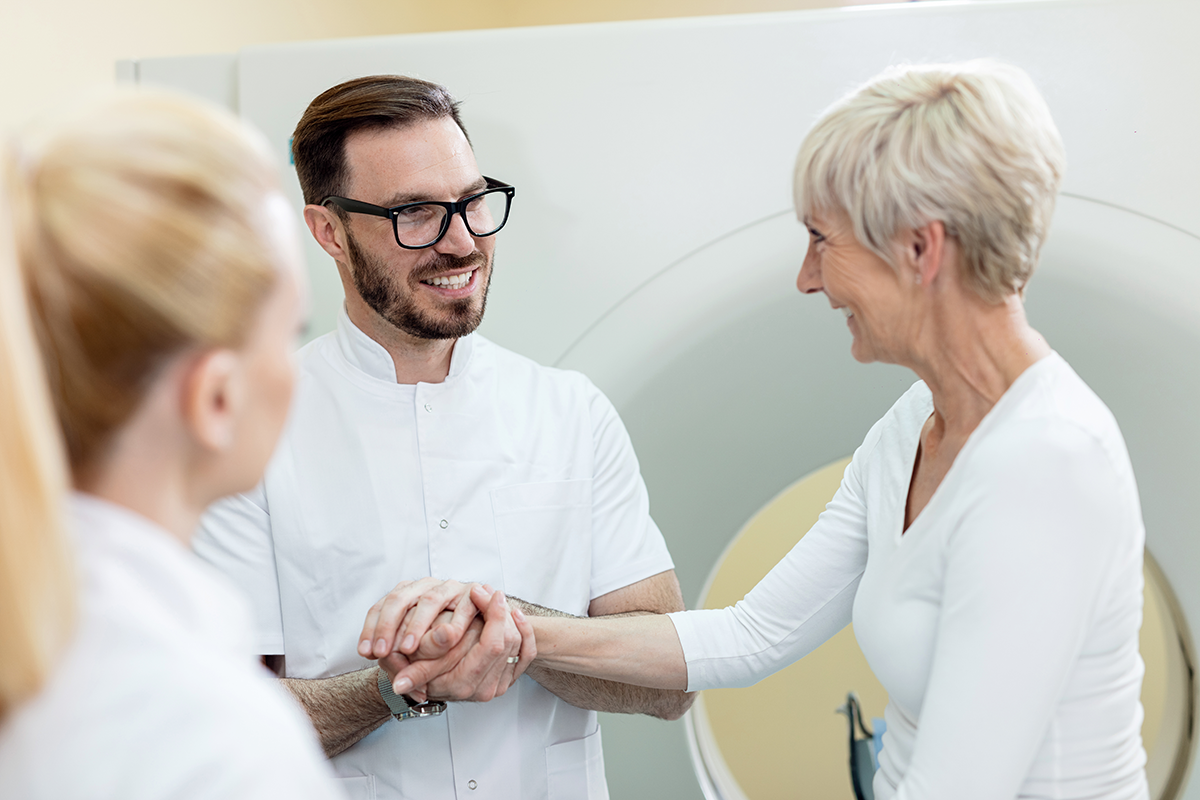
Now Enrolling: FEATURE (EA1183) – FDG PET to Assess Therapeutic Response in Patients with Bone-dominant Metastatic Breast Cancer
May 29, 2020
ECOG-ACRIN Research at #ASCO20: How Twitter Helped Fill the Virtual Void
June 10, 2020From the Co-Chairs, May 2020


By Peter J. O’Dwyer, MD (left), and Mitchell D. Schnall, MD, PhD
How is our isolated existence different from a month ago? In many ways… we know a lot more about COVID-19; much still to learn, but lessons are emerging:
- Predictions about social distancing flattening the incidence curve have proven correct. The case load has been attenuated, and along with it, the death rate. Across the US, the will of the majority has been exercised with rare unity of purpose. Now we know that it may have protected especially the weakest, the oldest members of society.
- Global awareness increased as lessons were gleaned from the preparations and responses across the world. The immediate interventions in Korea, where we have several EA members, were rewarded with a return to normalcy after low mortality as we write. However, we have much to learn regarding how, with similarly excellent health systems, high mortality was experienced through Italy, France, Spain and Portugal.
- On the principle that “bad news travels fast,” it seems reasonable to conclude that cancer patients seem no more susceptible to coronavirus infection, nor, when infected, is their outcome much worse. And, though the limited literature is conflicting, there seems no deleterious interaction between checkpoint inhibitors and viral infection. We hope that the many studies ongoing will be able to quickly reassure patients and physicians.
- Finally, perhaps as a result of an enforced contemplative existence, we are in general more accepting of social distancing, a practice that may need to continue for a long time. We are reminded that the flu epidemic at the end of World War I continued, with peaks and valleys, for three years. We will be thoughtful about our interactions through a similar period of time.
But our greatest change from ten weeks ago, when normalcy, security, and the economy simply dissolved before us, is a growing confidence that this condition can be managed, both at a societal level (who knew that epidemiologists would be rock stars?), and for the most part at a patient level. Introspection yields to the demands of the quotidian. Welcome back, EA members who have re-opened clinical research activities. Welcome back, research nurses and data coordinators who relish re-engaging with their patients and studies. Welcome back, laboratory colleagues, whose work underpins our protocols (and powers local economies). As we all hit the “restart” button, let’s appreciate being able to exercise our chosen profession in however much of the pre-COVID environment we can reconstruct. We have work to do!
In this issue, we call attention to a timely initiative led by our colleagues at the NCI: a clinical study of people with cancer who have COVID-19. NCI will provide full reimbursement for each patient enrolled on this study, called COVID-19 in Cancer Patients Study (NNCAPS). With sorrow, we remember Valerie Guild, founder and president of AIM at Melanoma and a patient advocate on our Melanoma Committee for more than a decade. We also share emotional support resources that may prove helpful as we navigate the demands of providing health care in the era of COVID-19. And, this month we highlight the Indiana University Melvin and Bren Simon Comprehensive Cancer Center. Led by Kathy Miller, MD, Indiana University has been a leader in ECOG-ACRIN since they joined in 1986.
Read the May 2020 issue here.![ECOG-ACRIN logo[19516]275×75](https://blog-ecog-acrin.org/wp-content/uploads/2021/03/ECOG-ACRIN-logo19516275x75.png)
